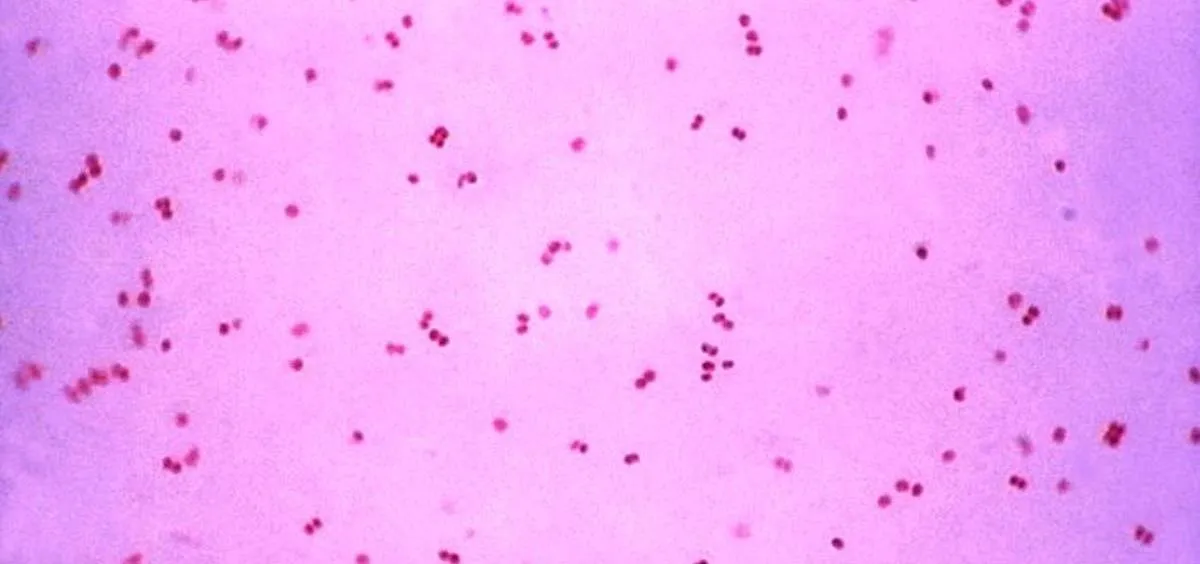Gonorrhea infections reached a peak in 1975, then decreased until 2009, when infection rate started rising and has increased each year since. With the rise of antibiotic resistance, those numbers are only going to get worse — unless we find new treatments against the bacteria.
Over 800,000 cases of gonorrhea were reported in 2015, making it second only to Chlamydia as the most reported infectious disease. People infected with Neisseria gonorrhoeae, the organism causing the sexually transmitted disease, don't always know they have the disease. But, even without symptoms, an infected person can infect sexual partners. Usually, antibiotics can clear the infection, but now the bacteria have developed resistance to two major antibiotics (fluoroquinolone and tetracycline), and we are worried that's just the beginning.
Researchers from Imperial College London and the London School of Hygiene & Tropical Medicine have tested a new antibiotic, closthioamide, and found a very low amount was all it took to kill the bacteria in 146 of 149 "untreatable" samples taken from patients.
The study, by researcher Victoria Miari, from the London School of Hygiene & Tropical Medicine, and her colleagues was published August 8 in Antimicrobial Agents and Chemotherapy.
The Threat of Drug-Resistant Gonorrhea
Men and women with gonorrheamay have no symptoms, or they may have a burning sensation when urinating or discharge from their genitals. Effective treatment is important to prevent permanent health problems in both women and men. Untreated gonorrhea in women can cause pelvic inflammatory disease, that may result in scar tissue that blocks fallopian tubes, causing pregnancy outside the womb (ectopic pregnancy), infertility, and long-term pelvic pain. Untreated infections in men can cause pain in the tubes attached to the testicles, and rarely, sterility.
In 2011, the World Health Organization recommended dual treatment with ceftriaxone and azithromycin, as a way to delay antibiotic resistance to single antibiotics, like cephalosporins — one of the last antibiotics effective against the bacteria — used as treatment. The dual therapy may be the last option for treating Neisseria gonorrhoeae infections and the amount of drug needed to treat infections is increasing every year.
Resistance to antibiotics develops when mutant bacteria — which are no longer killed by an antibiotic —thrive and multiply in the presence of an antibiotic, while the non-resistant organisms die. In that way, survival of drug-resistant organisms is favored.
Bacteria can also develop antibiotic resistance genes through a process called horizontal gene transfer that occurs when bacteria are in close contact with each other and pass genetic material between them.
"Antibiotic resistance, combined with the reduction of drug development, is one of the biggest health issues facing the world today. The problem threatens to render many human and animal infections untreatable, including gonorrhea," Miari said in a press release. "With no effective vaccine available, new antibiotics are urgently needed to tackle this infection which, left untreated, can have very serious consequences."
Of the 820,000 gonococcal infections reported each year in the US, 246,000 of them are drug-resistant. Those statistics make it an urgent threat to global health and action is needed immediately to avert the impending healthcare disaster.
A New Drug for Drug-Resistant Gonorrhea
Closthioamide is an antibiotic isolated from the Clostridium cellulolyticum bacteria in 2010. It represents a new class of natural antibiotics, and it's thought to act by impairing DNA replication and by inhibiting DNA gyrase, an essential bacterial enzyme.
Miari and her team tested closthioamide on 149 throat, urethra, cervix, and rectum samples of Neisseria gonorrhoeae from hospital patients. The bacteria in all the samples were resistant to other antibiotics. Very low concentrations of the new antibiotic — in the range of 0.125 mg/L — were effective at killing 146 of 149 samples.
The new antibiotic hasn't been tested yet in animals or humans. However, the researchers are cautiously optimistic about this exciting new step in the fight against the disease.
"The imminent threat of untreatable antibiotic-resistant infectious diseases, including gonorrhea, is a global problem, for which we urgently need new antibiotics. This new finding might help us take the lead in the arms race against antimicrobial resistance," study author John Heap, from Imperial College London, said in a press release.
- Follow Invisiverse on Facebook and Twitter
- Follow WonderHowTo on Facebook, Twitter, Pinterest, and Google+
Cover image via Joe Miller/CDC

























Comments
Be the first, drop a comment!